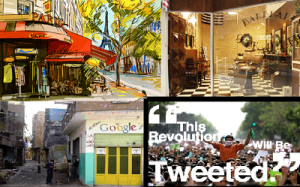
Barber shops, cafes and nets
According to Peter Burke, the locu s of religious and political discussions in 1620 was the barbershops, quotes the Italian writer Ludovico Zuccolo, who evoked them full of ordinary people discussing the religious problems and the attitudes of the rulers.
s of religious and political discussions in 1620 was the barbershops, quotes the Italian writer Ludovico Zuccolo, who evoked them full of ordinary people discussing the religious problems and the attitudes of the rulers.
The first great wave of reading was to interpret the Bible, the same that Galileo had claimed and which is still ignored today, the same Ludovico said that as the number of illiterates fell, they were common in the sixteenth century in Italy, for example, shoemakers , Dyers, masons, and housewives, claim the right to interpret the sacred scriptures.
In the 1620s religious concerns were compounded by political concerns. Ludovico Zuccolo, an Italian writer, evoked the image of the barber shops full of ordinary people discussing the measures of the rulers.
Anyone who thinks that there is an excess of information today, as soon as the books began to be printed at more reasonable prices, one already complained about the number of existing books and how one would read them in a single life, in 1975 for example, 1745 The Vatican library, housed only 2,500 volumes, in the seventeenth century the Bodleian Library of Oxford had 8,700 titles, and the imperial library of Vienna, 10,000.
From the barbershops to the cafés, Café de La Paix is the scene of many novels, paintings and poems, Guy de Maupassant and Emile Zola frequented it, the proximity to the Opera Gamier (next door) made it a kind of Museum, In 1975 it was considered a historical site by the French government.
Would cybercafes be your descendants? They lived with libraries and other places of dialogue and culture, they were important in the “Arab Spring,” especially in Libya and Egypt, there were violence events with heroes who posted denunciations in these cybercafes.
Both the uprising in Egypt and Libya were recorded in numerous social media, a good example is the video with 2,000 deaths (video of OneDayOnEarth), reveal the taste of the dictators for the worship of the person and vertical media.
Long before the outbreak of the war in Syria, looking at the comments on the networks, we knew that there was a powder keg (see our post 2012), and also a blogger Tal al-Molouhi, arrested in 2009, was one of the fuses for the uprising.
The governments and owners of vertical media do not accept the influence of the networks, because it is their bankruptcy, but now even the authoritarian Trump does not give ball to them, makes its own media, of course it does not go unanswered, in social media media Is losing ugly.









